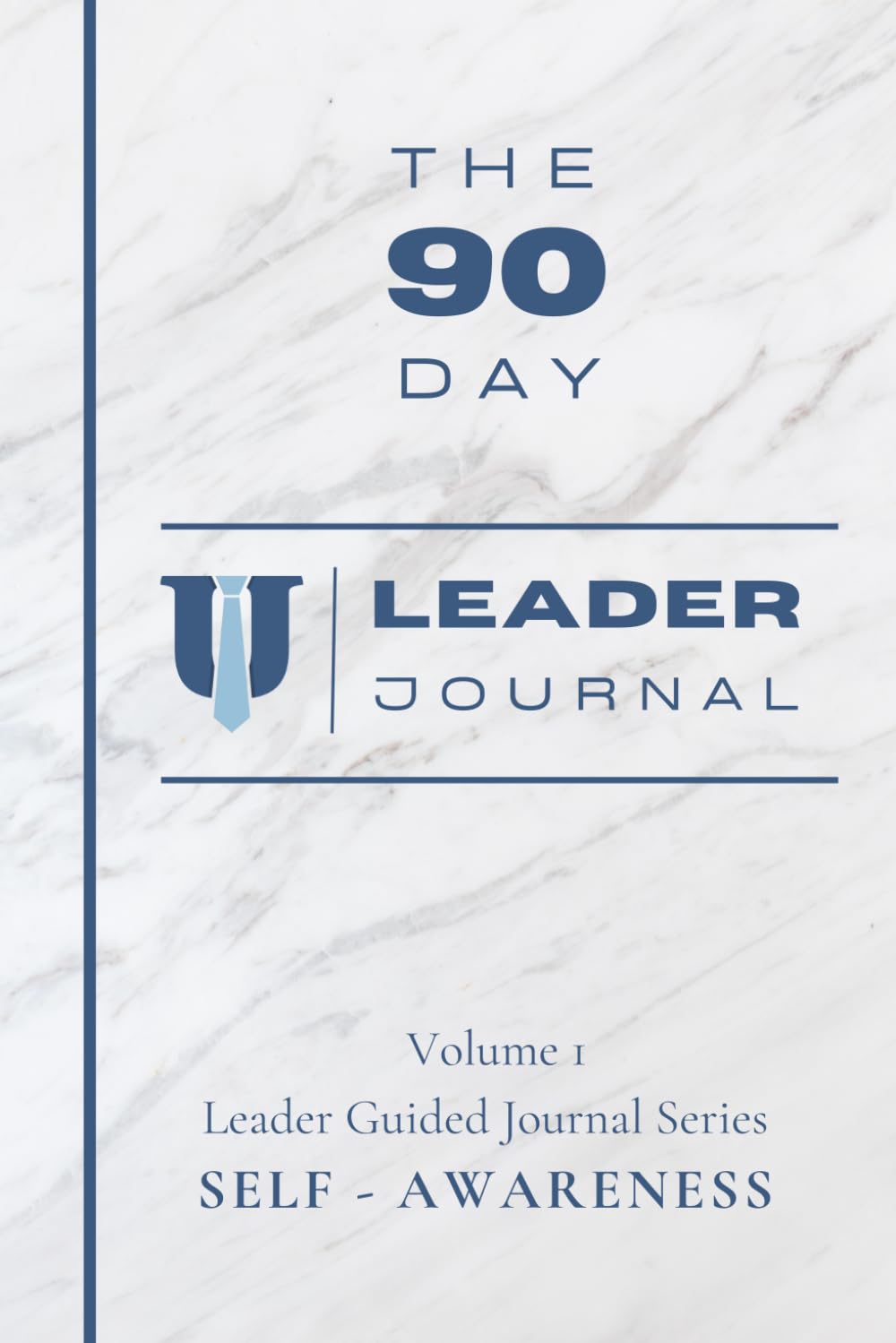
Welcome to a journey through time and thought as we explore the enduring practice of leader journaling—a tradition that spans from the philosophical musings of Marcus Aurelius in ancient Rome to the digital reflections of today’s global leaders. In this blog, we unlock the history and evolution of journaling, delving into its origins, its transformative role across different eras, and its lasting impact on leadership and personal development.
Table of Contents
Introduction
Leader journaling, a timeless practice among history’s greatest minds, offers unmatched insight and personal growth for today’s leaders. This discipline, far from outdated, remains a critical tool in the leadership arsenal, bridging ancient wisdom with modern strategies. The origin of leader journaling reveals a journey from ancient scrolls to digital screens, showcasing its role in reflection, decision-making, and authentic leadership development.
Our exploration, “Unlocking History: Origin of Leader Journaling,” invites readers on an engaging journey through time. From the first leaders who documented their reigns to the Renaissance thinkers and beyond, journaling has been a source of solace and strategy. By tracing its evolution, we uncover not just personal anecdotes but also enduring truths that inform current leadership philosophies.
This voyage is more than an academic endeavor; it connects past practices and today’s leadership challenges. Discovering the roots of leader journaling highlights its value in enhancing decision-making and fostering growth, emphasizing its relevance in cultivating reflective, effective, and empathetic leaders.
Join us in exploring the pivotal role of journaling in leadership across the ages. The shared endeavor of understanding oneself and the world through journaling demonstrates its lasting importance. Through this journey, we not only delve into the history of leader journaling but also affirm its ongoing significance in shaping thoughtful leaders.
Origin of Leader Journaling Among Leaders
The origin of leader journaling stretches back to the cradle of civilization, where the earliest forms of written communication began not just as administrative tools but as personal reflections of the world’s first leaders. Historical leader journals, preserved on clay tablets, papyrus, and stone, offer a window into the minds of those who shaped the ancient world. These artifacts, while sparse, underscore the timeless human desire to record thoughts, experiences, and decisions, laying the groundwork for what would evolve into reflective journaling for leaders.
Ancient Mesopotamia and Egypt
In Ancient Mesopotamia, the cradle of writing, rulers documented their conquests, laws, and administrative decisions. Similarly, Egyptian pharaohs maintained records beyond mere administrative logs; they included personal reflections on power, divinity, and governance. These early examples of leader diary keeping reveal a dual purpose: to communicate authority and to introspect on the burdens of leadership.
The Greek Philosophers
The Greeks, with their rich tradition of philosophy and leadership, provide compelling examples of early reflective journaling for leaders. Figures such as Marcus Aurelius, a Roman Emperor influenced by Stoic philosophy, journaled not for posterity but for personal reflection. His “Meditations” remain a seminal work, illustrating journaling as a tool for self-improvement and ethical leadership. Through his writings, Aurelius demonstrated how self-awareness through journaling could guide a leader’s actions and decisions.
The Far East: China
In China, keeping personal diaries was common among emperors and scholars alike. The Chinese emphasis on history and moral philosophy meant that leaders often recorded their thoughts, poetry, and reflections on governance. These journals served as a personal outlet and a guide for future generations, embodying the Confucian ideal of reflective and moral leadership.
Leader Journaling in the Middle Ages to Renaissance
The transition from the Middle Ages to the Renaissance marked a period of significant intellectual, cultural, and artistic development. During this era, leader journaling evolved from simple record-keeping to a more introspective practice, reflecting the broader humanist movement that emphasized individual potential and creativity.

Key Figures and Their Contributions
- Leonardo da Vinci:
- Codices: Leonardo’s notebooks, known as codices, are prime examples of how journaling served as a multifaceted tool for innovation, creativity, and intellectual exploration.
- Content: They contained observations, sketches, and inventions spanning various fields, from anatomy to engineering, reflecting the Renaissance ideal of a polymath.
- Leadership Lesson: Leonardo’s journals highlight the importance of curiosity and continuous learning, traits essential for modern innovative leadership tools.
- Michelangelo Buonarroti:
- Journaling Practice: Though best known for his art, Michelangelo’s letters and poems offer insights into his thoughts, reflecting on his creative process, personal struggles, and views on leadership.
- Leadership Lesson: His writings underscore the role of emotional resilience and personal vision, critical for authentic leadership development.
Evolution of Journaling Practices
- From Public to Personal:
- Early in the Middle Ages, journals were primarily records of public and business transactions.
- As the Renaissance progressed, the focus shifted towards personal reflection, artistic exploration, and the documentation of scientific observations.
- Technological Advances:
- The invention of the printing press in the mid-15th century by Johannes Gutenberg revolutionized the dissemination of knowledge, including the distribution of journals, thereby amplifying the influence of leaders’ and thinkers’ ideas.
Impact on Modern Leadership Journaling
- The Renaissance’s emphasis on self-reflection, exploration, and the pursuit of knowledge continues to influence modern leader journaling practices. Today’s leaders can draw inspiration from Renaissance figures, incorporating journaling as a tool for:
- Self-Improvement: Reflecting on personal and professional growth.
- Innovation: Documenting ideas and insights that can lead to new breakthroughs.
- Emotional Intelligence: Understanding personal emotions and those of others to improve interpersonal relationships and leadership effectiveness.
The Age of Enlightenment and Beyond
As we progress from the origin of leader journaling and venture further into the annals of history, the Age of Enlightenment marks a significant era where journaling amongst leaders not only continued to flourish but evolved in its purpose and influence. This period, characterized by an emphasis on reason, knowledge, and individualism, witnessed leaders who meticulously documented their thoughts, experiments, and philosophies, thereby shaping the intellectual landscape of their time and beyond.

Benjamin Franklin: A Paradigm of Enlightenment Leadership
Benjamin Franklin, one of the most illustrious figures of this era, exemplifies the enlightened leader whose journals served as a mirror to his multifaceted life as a statesman, inventor, and philosopher. Franklin’s journaling was not just a personal habit but a deliberate exercise in self-improvement and societal contribution. His famous 13 Virtues journal, where he tracked his progress toward moral perfection, reveals the profound impact of journaling on personal development and leadership efficacy.
Franklin’s Journaling Influence on Leadership and Self-Improvement
Franklin’s methodical approach to journaling underscored the Enlightenment ideals of order, discipline, and continuous learning. By setting clear goals and reflecting on his daily actions, Franklin demonstrated how leaders could cultivate self-awareness, discipline, and a commitment to personal and professional growth. His journals, filled with insights on innovation, politics, and ethics, serve as a timeless guide for leaders seeking to enhance their reflective journaling for leaders skills and impact.
The Broader Legacy of Enlightenment Journaling
Beyond Franklin, the Enlightenment era was rich with leaders and thinkers who used journaling as a tool for exploration and expression. These journals not only chronicled personal journeys and intellectual explorations but also contributed to the collective knowledge of society. The era’s emphasis on reason and individual thought found a natural ally in the practice of journaling, allowing leaders to question, innovate, and lead with clarity and purpose.
Connecting the Enlightenment to Modern Leadership
The Enlightenment period, focusing on critical thinking, self-improvement, and the pursuit of knowledge, offers enduring lessons for today’s leaders. Journaling during this time highlights the importance of introspection, continuous learning, and articulating ideas—qualities that are ever-relevant in the quest for effective leadership. In drawing inspiration from figures like Benjamin Franklin, modern leaders can appreciate the role of journaling in achieving personal excellence and influencing broader societal progress.
Modern Leader Journaling Practices
In the digital age, the essence of leader journaling has transformed, adapting to new technologies and the fast-paced nature of leadership in the 21st century. Despite these changes, the core benefits of journaling for reflection, strategic planning, and personal growth remain constant and embraced by contemporary leaders across various fields. This section explores how today’s leaders continue the tradition of journaling, integrating it with modern tools and practices.

Embracing Digital Platforms for Journaling
Digital technology has introduced a new dimension to journaling, with innovative leadership tools making it easier for leaders to maintain their journals. Digital platforms and apps offer convenience, security, and accessibility, allowing leaders to capture insights, reflect on daily experiences, and track progress toward goals anytime, anywhere. This shift to digital has not diminished the value of journaling; rather, it has expanded its reach and versatility, enabling a broader spectrum of leaders to adopt the practice.
Journaling Among Today’s Business Leaders
Many of today’s most influential business and entrepreneurship leaders advocate for keeping a journal. Figures such as Oprah Winfrey, Richard Branson, and Bill Gates have spoken about how journaling has contributed to their success, offering a space for clarity, innovation, and problem-solving. These leaders use journaling not just as a tool for personal reflection but as a strategic asset in navigating the complexities of modern business.
The Role of Journaling in Leadership Development
Journaling continues to play a critical role in leadership development, serving as a reflective practice that enhances self-awareness, emotional intelligence, and decision-making skills. By regularly documenting their thoughts, challenges, and achievements, leaders can observe patterns, celebrate successes, and learn from mistakes. This process is invaluable in cultivating a growth mindset, a key attribute for effective leadership in today’s rapidly changing world.
The Science and Benefits of Journaling for Leaders
Journaling, a practice as ancient as leadership itself, has been scrutinized and validated by modern science for its myriad benefits to leaders in all sectors. This section delves into the empirical and anecdotal evidence supporting the practice, outlining the key benefits leaders can derive from maintaining a regular journaling habit.
Empirical Evidence: The Impact of Journaling on Leadership Effectiveness
- Emotional Intelligence:
- Benefit: Enhances leaders’ ability to understand and manage emotions, facilitating better interpersonal relationships.
- Study Findings: Research indicates that reflective writing helps individuals process emotions and experiences, leading to improved emotional intelligence (EI).
- Decision-Making:
- Benefit: Improves clarity, critical thinking, and the ability to weigh options objectively.
- Study Findings: Studies have shown that journaling about decisions and possible outcomes can aid in clarifying priorities and values, leading to more informed decision-making.
Anecdotal Benefits: Insights from Practicing Leaders
- Stress Reduction:
- Leaders report that journaling provides a therapeutic outlet for stress relief, allowing them to disentangle complex feelings and reduce overall stress levels.
- Enhanced Creativity:
- Documenting thoughts and ideas can spark creativity, leading to innovative solutions and new approaches to leadership challenges.
Practical Tips for Incorporating Journaling into Leadership Development
- Choosing a Format:
- Digital vs. Paper: Select based on personal preference, considering convenience, accessibility, and comfort.
- Setting a Routine:
- Consistency is key: Aim for a regular schedule, whether daily or weekly, to build the habit.
- Journaling Topics for Leaders:
- Challenges and Solutions: Reflect on leadership challenges faced and potential solutions.
- Goals and Progress: Track progress towards personal and professional goals.
- Learning and Insights: Document key learnings from experiences, readings, and interactions.
Guiding Principles for Leader Journaling
Journaling can be a transformative tool for leaders, aiding in reflection, decision-making, and personal growth. To harness its full potential, following certain guiding principles can make journaling a more effective and rewarding practice. Here, we outline essential tips and best practices for leader journaling.
Principles and Best Practices
| Principle | Description | Tips for Implementation |
| Choose Your Medium | Decide whether a digital platform or traditional paper journal suits your style and needs better. | Consider portability, accessibility, and personal comfort. |
| Set a Consistent Time | Journaling regularly helps build the habit and ensures consistent reflection. | Schedule a fixed time daily or weekly for journaling. |
| Keep It Private | The assurance of privacy encourages honesty and deeper self-reflection. | Use a locked app or a secure location for your journal. |
| Reflect, Don’t Just Record | Go beyond listing events; delve into feelings, insights, and lessons learned. | Ask yourself “why” and “how” to deepen reflections. |
| Use Prompts | Prompts can guide your thoughts and help overcome writer’s block. | Start with questions like “What challenged me today?” |
| Review Regularly | Periodically reviewing past entries can offer insights into growth and patterns you might want to change. | Set aside time each month or quarter for review. |
Incorporating Journaling into Leadership Development
- Align Journaling with Goals: Use your journal to track progress towards leadership goals, reflecting on successes and areas for improvement.
- Balance Structure and Flexibility: While some structure can be helpful, allow flexibility in your journaling practice to explore different topics and formats.
- Embrace Imperfection: Your journal doesn’t need to be perfectly written or organized; it’s a space for raw, unfiltered reflection.
Conclusion: Embracing the Timeless Practice of Leader Journaling
As we journey from the ancient corridors of history to the digital halls of today, the enduring legacy of leader journaling is a testament to its intrinsic value in leadership development. The practice once etched in stone and now often typed on screens, continues to serve as a powerful tool for reflection, innovation, and personal growth. Through the ages, the essence of journaling has remained unchanged: it is a conduit for deeper understanding, a mirror reflecting the leader’s inner world, and a compass guiding towards greater wisdom and authenticity.
The exploration of journaling’s origins and evolution reveals not only its historical significance but also its practical relevance in today’s fast-paced, complex leadership landscapes. From the reflective meditations of Marcus Aurelius to the innovative sketches of Leonardo da Vinci and onto the strategic musings of modern executives, journaling emerges as a foundational practice for effective leadership. It fosters a disciplined mind, nurtures emotional intelligence, and cultivates a vision that transcends the immediacy of daily challenges.
Incorporating journaling into one’s leadership practice is not merely a nod to tradition but a strategic embrace of a proven tool for enhancing decision-making, creativity, and self-awareness. As we navigate the challenges and opportunities of the 21st century, the lessons drawn from centuries of leader journaling illuminate the path toward more reflective, resilient, and impactful leadership.
Begin Your Journaling Journey Today
The journey of a thousand miles begins with a single step, as does the journey of transformative leadership through journaling. Whether you are a seasoned leader seeking to deepen your reflective practice or a new manager aiming to develop your leadership voice, journaling offers greater clarity, insight, and effectiveness.
- Start Small: Commit to journaling for a few minutes each day or week, focusing on the experiences and thoughts that resonate most deeply with you.
- Explore and Experiment: Find the medium, format, and rhythm that best suits your style and needs. Remember, there is no one “right” way to journal.
- Share and Inspire: Consider sharing the insights and lessons you’ve gained through journaling with your team or peers, fostering a culture of reflection and continuous learning within your organization.
We invite you to embark on your journaling journey, explore the depths of your leadership potential, and write the next chapter of your leadership story with intention, insight, and inspiration. Start today and discover the transformative power of leader journaling for yourself.





Leave a Reply